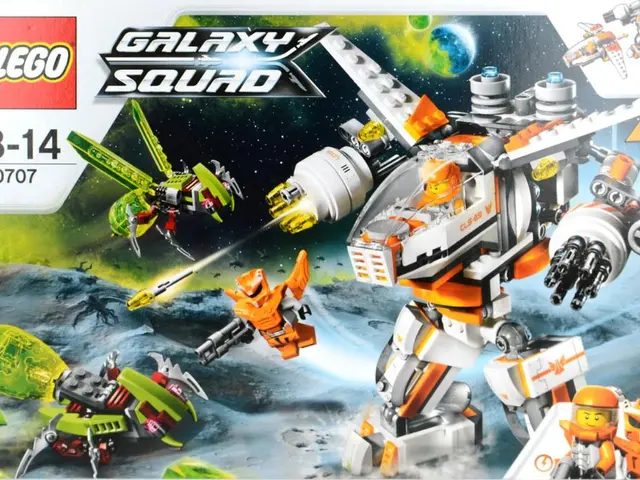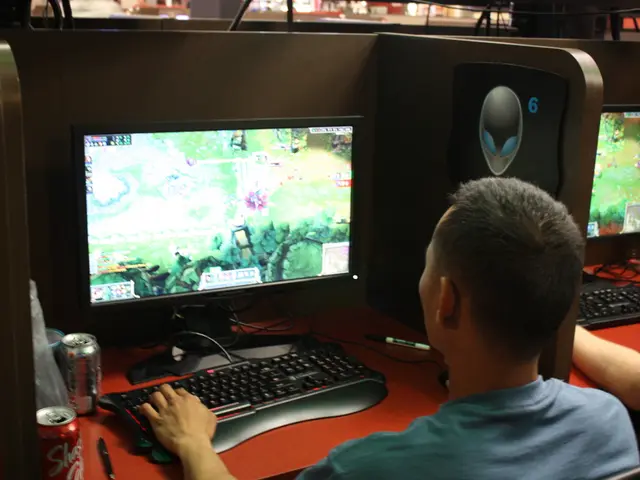NATO Shifts Strategy Towards Collaborating With Startups to Outrun Competitors
In a bid to bolster its warfighting capabilities, NATO has launched the Defence Innovation Accelerator for the North Atlantic (DIANA) initiative. The programme, launched in June 2023, aims to support defence technology startups by providing access to a vast network of resources, funding, and opportunities for collaboration.
Jyoti Hirani-Driver, the COO of DIANA, emphasises the importance of early-stage startups and SMEs for the Alliance. Hirani-Driver, who has a deep understanding of the challenges in delivering new innovations to the armed forces due to her career in government, is dedicated to finding dual-use technology that can serve both soldiers and civilians in the 32 NATO member nations.
DIANA's comprehensive support structure empowers defence tech startups to develop and deploy cutting-edge solutions more efficiently. The initiative provides access to a network of 23 accelerators and 182 test centres across NATO's 32 member countries, allowing startups to test and refine their technologies in diverse environments. This infrastructure fosters transatlantic collaboration, enriching innovators and enhancing synergies between nations.
Financial support is also a key aspect of DIANA's offerings. The NATO Innovation Fund (NIF), a $1.1 billion fund, offers financial support to startups developing dual-use technologies. This capital helps founders address defense, security, and resilience challenges. DIANA and the NIF also provide grants and early-stage support to startups across 28 countries, facilitating the development and commercialization of innovative technologies.
Successful applicants enter a six-month programme delivered by accelerator sites across the NATO Alliance. Each selected startup receives €100,000, but Hirani-Driver emphasises that the main value lies in connections with end-users, mentors, and test centres. Startups gain access to NATO mentors, end-users, and unique test centres, such as CR14 in Estonia.
Notable startups that have progressed through the programmes include Goldilock, Astrolight, Revobeam, and Lobster Robotics, a Netherlands-based company specialising in autonomous underwater vehicles for seabed mapping, valuable for both marine conservation and naval surveillance.
DIANA's programmes focus on specific defence and security challenges, including Energy & Power, Data & Information Security, Sensing & Surveillance, Human Health & Performance, and Critical Infrastructure & Logistics. The investments backed by DIANA have advanced hypersonics, big data, autonomous systems, AI, and space-based technologies.
DIANA's mission is not just about enhancing warfighting capabilities but also about embedding innovation into the lifeblood of defence, not just in terms of capabilities, but in their people as well. Hirani-Driver will share her views on the rise of defence tech during a panel discussion on June 19, 2023.
The next wave of DIANA challenges will launch this summer, expanding into additional focus areas to bring new innovations to NATO's warfighting capabilities. The initiative is a significant step towards ensuring that NATO stays ahead of its adversaries in the rapidly evolving field of defence technology.
Technology plays a crucial role in the Defence Innovation Accelerator for the North Atlantic (DIANA) initiative, as it aims to support defence technology startups and foster the development of dual-use technology that can serve both soldiers and civilians in NATO member nations.
The NATO Innovation Fund (NIF) offers financial support to startups developing dual-use technologies, providing capital to address defense, security, and resilience challenges, with successful applicants receiving €100,000 and access to mentors, end-users, and unique test centres like CR14 in Estonia.




